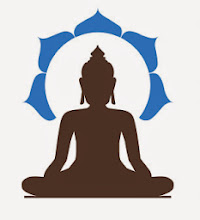
Core Beliefs In Buddhism
NOBLE EIGHTFOLD PATH
1. Right View/Understanding
(Understanding the Four Noble Truths) - See things as they truly are without delusions or distortions for all things change. Develop wisdom by knowing how things work, knowing oneself and others.
2. Right Thinking
Decide to set a life on the correct path.Wholehearted resolution and dedication to overcoming the dislocation of self-centered craving through the development of loving kindness, empathy and compassion.
3. Right Speech
Abstinence from lies and deceptions, backbiting, idle babble and abusive speech. Cultivate honesty and truthfulness; practice speech that is kind and benevolent. Let your words reflect your desire to help, not harm others.
4.Right Conduct
(Following the Five Precepts) - Practice self-less conduct that reflects the highest statement of the life you want to live. Express conduct that is peaceful, honest and pure showing compassion for all beings.
5. Right Livelihood
Earn a living that does not harm living things. Avoidance of work that causes suffering to others or that makes a decent, virtuous life impossible. Do not engage in any occupation that opposes or distracts one from the path. Love and serve our world through your work.
6. Right Effort
Seek to make the balance between the exertion of following the spiritual path and a moderate life that is not over-zealous. Work to develop more wholesome mind states, while gently striving to go deeper and live more fully.
7. Right Mindfulness
Become intensely aware of all the states in body, feeling, and mind. Through constant vigilance in thought, speech and action seek to rid the mind of self-centered thoughts that separate and replace them with those that bind all beings together. Be aware of your thoughts, emotions, body and world as they exist in the present moment. Your thoughts create your reality.
8. Right Concentration
Deep meditation to lead to a higher state of consciousness (enlightenment). Through the application of meditation and mental discipline seek to extinguish the last flame of grasping consciousness and develop an emptiness that has room to embrace and love all things.














































